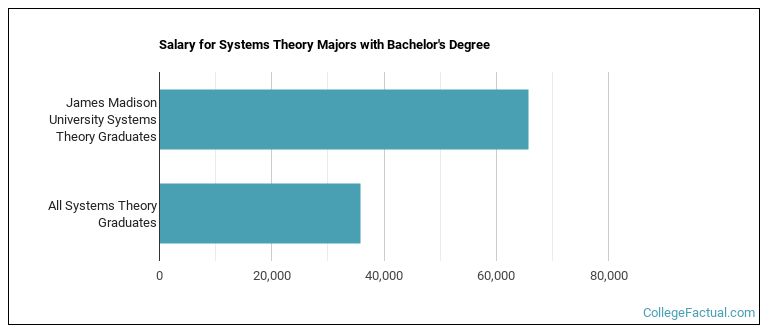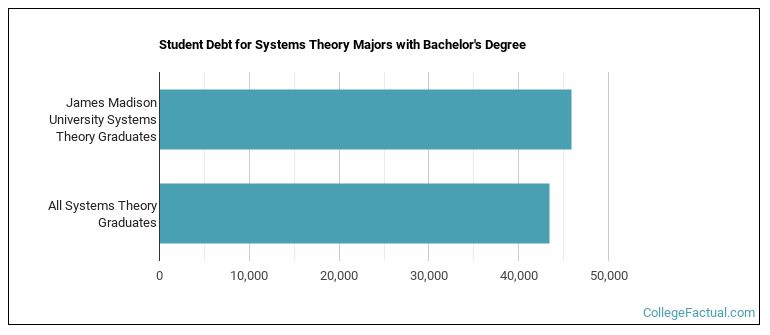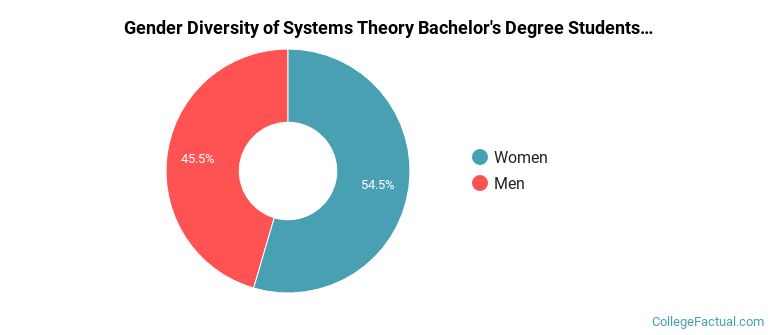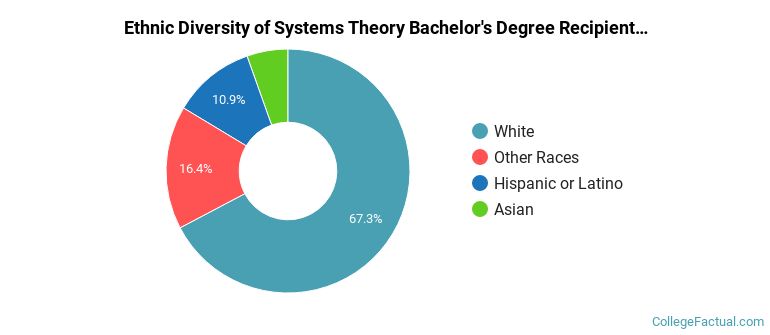 by our College Data Analytics Team
by our College Data Analytics TeamHere, you'll find out more about the major, including such details as the number of graduates, what degree levels are offered, ethnicity of students, average salaries, and more. Also, learn how JMU ranks among other schools offering degrees in systems theory.
Go directly to any of the following sections:
The bachelor's program at JMU was ranked #11 on College Factual's Best Schools for systems theory list. It is also ranked #1 in Virginia.
| Ranking Type | Rank |
|---|---|
| Best Systems Theory Bachelor’s Degree Schools | 3 |
| Best Systems Theory Schools | 11 |
During the 2021-2022 academic year, James Madison University handed out 55 bachelor's degrees in systems theory. This is an increase of 4% over the previous year when 53 degrees were handed out.
Systems Theory majors who earn their bachelor's degree from JMU go on to jobs where they make a median salary of $65,683 a year. This is higher than $35,841, which is the national median for all systems theory bachelor's degree recipients.

While getting their bachelor's degree at JMU, systems theory students borrow a median amount of $45,836 in student loans. This is higher than the the typical median of $43,428 for all systems theory majors across the country.

The typical student loan payment of a bachelor's degree student from the systems theory program at JMU is $479 per month.
In 2022-2023, the average part-time undergraduate tuition at JMU was $837 per credit hour for out-of-state students. The average for in-state students was $263 per credit hour. The following table shows the average full-time tuition and fees for undergraduates.
| In State | Out of State | |
|---|---|---|
| Tuition | $7,914 | $25,128 |
| Fees | $5,662 | $5,662 |
| Books and Supplies | $1,254 | $1,254 |
| On Campus Room and Board | $12,584 | $12,584 |
| On Campus Other Expenses | $4,560 | $4,560 |
Learn more about JMU tuition and fees.
Of the 55 students who graduated with a Bachelor’s in systems theory from JMU in 2022, 45% were men and 55% were women.

The majority of bachelor's degree recipients in this major at JMU are white. In the most recent graduating class for which data is available, 67% of students fell into this category.
The following table and chart show the ethnic background for students who recently graduated from James Madison University with a bachelor's in systems theory.

| Ethnic Background | Number of Students |
|---|---|
| Asian | 3 |
| Black or African American | 0 |
| Hispanic or Latino | 6 |
| White | 37 |
| Non-Resident Aliens | 0 |
| Other Races | 9 |
Online degrees for the JMU systems theory bachelor’s degree program are not available at this time. To see if the school offers distance learning options in other areas, visit the JMU Online Learning page.
Take a look at the following statistics related to the make-up of the systems theory majors at James Madison University.
| Related Major | Annual Graduates |
|---|---|
| Science, Technology & Society | 82 |
| Other Multi/Interdisciplinary Studies | 4 |
More about our data sources and methodologies.